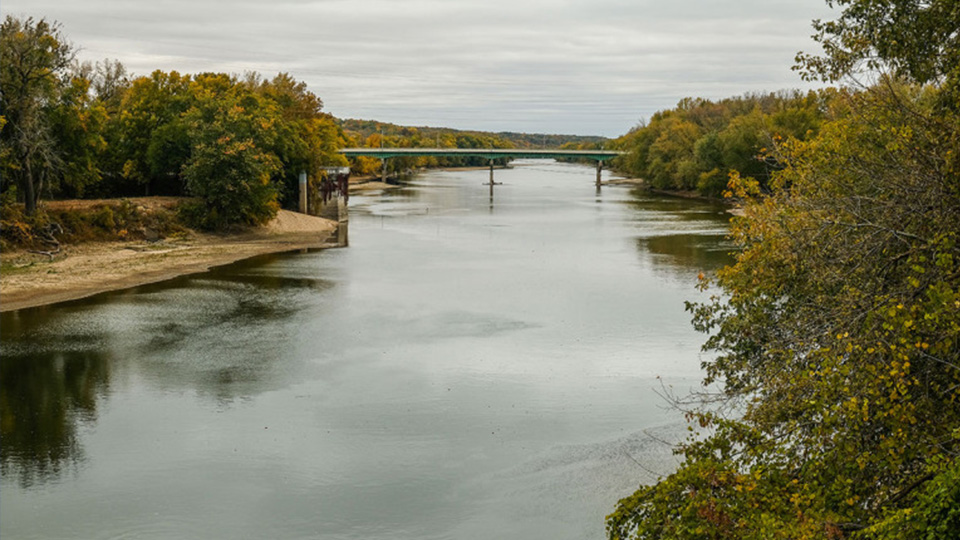Tippecanoe County considers moratorium on high-volume water transfers
Subscriber Benefit
As a subscriber you can listen to articles at work, in the car, or while you work out. Subscribe Now
The Tippecanoe County Commissioners are considering a temporary ban on high-volume water withdrawals and transfers in response to concerns over a potential pipeline that would draw massive amounts of water from a Wabash River aquifer and send it to an advanced manufacturing park in central Indiana.
The commissioners are scheduled Monday to vote on a nine-month moratorium on water extractions that exceed 5 million gallons per day and a prohibition on high-volume radial collector wells, which are capable of pumping more than one million gallons per day.
The proposal comes as the Indiana Economic Development Corp. the state’s quasi-public job creation agency, faces pushback for its exploration of a plan to pump as much as 100 million gallons of water per day from aquifers connected to the Wabash River. The water would then be piped 35 miles to Boone County to support advanced manufacturing developments at the LEAP Innovation and Research District near Lebanon. LEAP stands for Limitless Exploration/Advanced Pace.
The IEDC contracted with Texas-based environmental and water resource consulting firm Intera to drill test wells and conduct aquifer pumping tests on a 70-acre area above the Wabash Alluvial Aquifer. While engineers report promising early test results, some residents in Tippecanoe County remain highly dubious of the study’s claims.
“This is like no other issue I’ve dealt with in the 16 years I’ve been a county commissioner,” said Tom Murtaugh, a Tippecanoe County commissioner. “This is an issue that has both sides of the political aisle fired up.”
He said the commissioners are concerned the project could have adverse environmental impacts on the region’s water supply.
The commissioners are just the latest local governmental entity to consider action to slow down the pipeline. Though unlike the cities of Attica, Lafayette and West Lafayette, which passed symbolic resolutions opposing the pipeline, the commissioners’ proposal would gives the county the ability to order a work stop notice and levy a fine of up to $2,500 for each day that high-volume water withdrawals occur.
It’s unclear if the ordinance would hold up against a legal challenge. Murtaugh said the proposal is a stopgap measure to keep the project on hold until state lawmakers convene next year to consider passing tighter water regulations.
“Our attorneys are pretty confident that it will hold up,” Murtaugh told IBJ. “The intent for nine months is to get us past the legislative session and the enactment period of July 1 for any legislation that may come out of the statehouse.”
A bipartisan group of state legislators from the Lafayette area is drafting legislation that would require groundwater withdrawals of at least 10 million gallons of water per day—that is then transported to a destination beyond the aquifer surface area— to receive prior approval through a permitting process regulated by the Department of Natural Resources.
Under the legislation, large withdrawals would also require public hearings and written feasibility studies that would have to be peer-reviewed by an expert in water resource hydrology, with the Natural Resources Commission becoming the permitting authority.
Murtaugh said the the proposed county ordinance came out of a working group consisting of the county commissioners, Lafayette Mayor Tony Roswarski, West Lafayette Mayor John Dennis, partners at Purdue University and the Greater Lafayette Chamber of Commerce.
With concerns over the potential water pipeline rising, Gov. Eric Holcomb earlier this week decide to shift oversight of Intera’s water study from the IEDC to the Indiana Finance Authority, which has conducted three regional water studies since 2017.
In addition to overseeing state-related debt payments, the IFA manages the Wastewater and Drinking Water State Revolving Fund Loan programs and the Indiana Brownfields Program, which assists in the redevelopment of former industrial or commercial sites.
Holcomb also directed the IFA to accelerate the start of a planned comprehensive regional water study for north-central Indiana that will examine watersheds covering Tippecanoe County and at least 12 other counties. That study is expected to be completed in fall 2024.
IFA members include the state budget director, the state treasurer and three other members appointed by the governor.
Look for an update on Monday’s vote from the IBJ’s Peter Blanchard in the INside Edge Midday Report newsletter.
